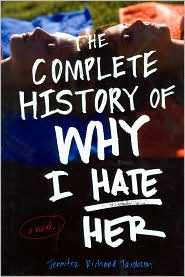
Jessica has nearly always thought of herself as a runner. From when she was little, running meant freedom. And running on the track team has been her favorite thing in the world. So when an accident crushes her leg and the limb is amputated, she has to redefine herself. How will she ever survive not being able to run again?
Step by step, Van Draanen shows how Jessica heals her physical and psychic wounds as best she can, and how she re-learns her abilities and her limits. Along the way, she befriends a younger handicapped girl who helps her in her recovery.
Most of the novel is good but average -- a well-researched story about amputation and rehabilitation. There's lots of nice details about how prosthetics are fitted and how they work. I was reminded of a similar book I read a few years back by Priscilla Cummings called A Face First (about a girl recovering from significant burn damage). It's one of my all-time favorite books. The challenge with this type of story is taking all of that research and making the story still flow -- combining entertainment with the education. Cummings pulled it off, but I didn't feel like Van Draanen did as well here. For its majority, the book is more a string of episodes -- related to each other but never quite flowing together.
All of this changes in the last sixty pages or so, when Van Draanen seemingly discovers the unifying theme for her story and brings it all home. Having gotten 2/3 through the book, I wasn't expecting such a strong finish, but it easily made the rest of the book (which isn't bad!) worth reading.



















